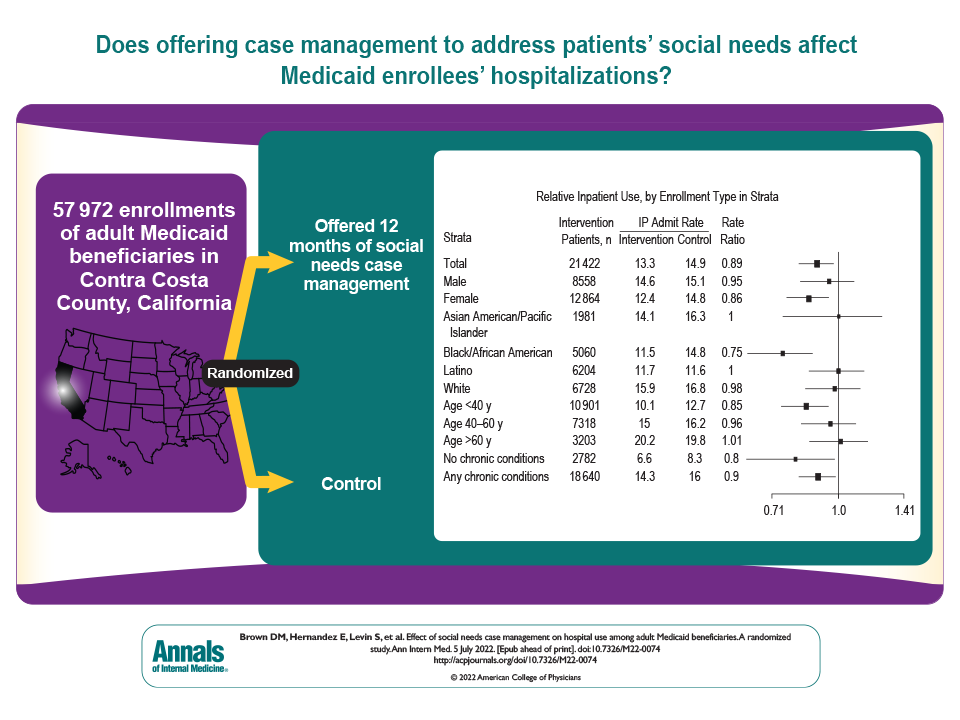Daniel M. Brown, MPH, PhD, Elizabeth A. Hernandez, MS, Sara Levin, MD, Mathijs De Vaan, PhD, Mi-Ok Kim, PhD, Chris Lynch, BS, Anna Roth, RN, MS, MPH, and Amanda L. Brewster, PhD

Abstract: https://www.acpjournals.org/doi/10.7326/M22-0074(link is external)
A randomized study of adult Medicaid patients suggests that social program-based interventions for housing, food security, and transportation may reduce inpatient admission rates by 11 percent and emergency department visits by 4 percent. However, health care savings based on these interventions may not cover the cost of social the social programs. The findings are published in Annals of Internal Medicine.
Health care-based programs assisting patients with social needs including housing, transportation, and food security are gaining interest as a strategy to improve health and avoid unnecessary health care use, but uncertainty remains about their impact. The success of programs may vary depending on factors including patient eligibility, personnel qualifications, and enrollment duration.
Researchers from Contra Costa Health Services and University of California, Berkeley School of Public Health studied adult Medicaid enrollees in Contra Costa County, CA, at elevated risk for health care to assess the population level impact of a case management program designed to address patients' social needs. The patients were randomly assigned to 12 months of social needs case management or the control group. However, only 40 percent of those assigned to the intervention program chose to engage in case management. The researchers found that the intervention programs saved $3,423,085, or 17 percent of yearly program expenses, in hospitalization costs. The intervention also reduced total inpatient admissions by 11 percent and total emergency department visits by 4 percent. According to the authors, the observed effect on inpatient admissions, and even more pronounced reduction in avoidable admissions, may suggest that the intervention supported better management of chronic conditions. They also report that feedback from participating case managers suggested that the program helped patients build trust with the health system, resolve basic social needs, and better navigate the care landscape. The authors caution that although the interventions saved health care use, they may not save enough money to cover the cost of intervention programs.
